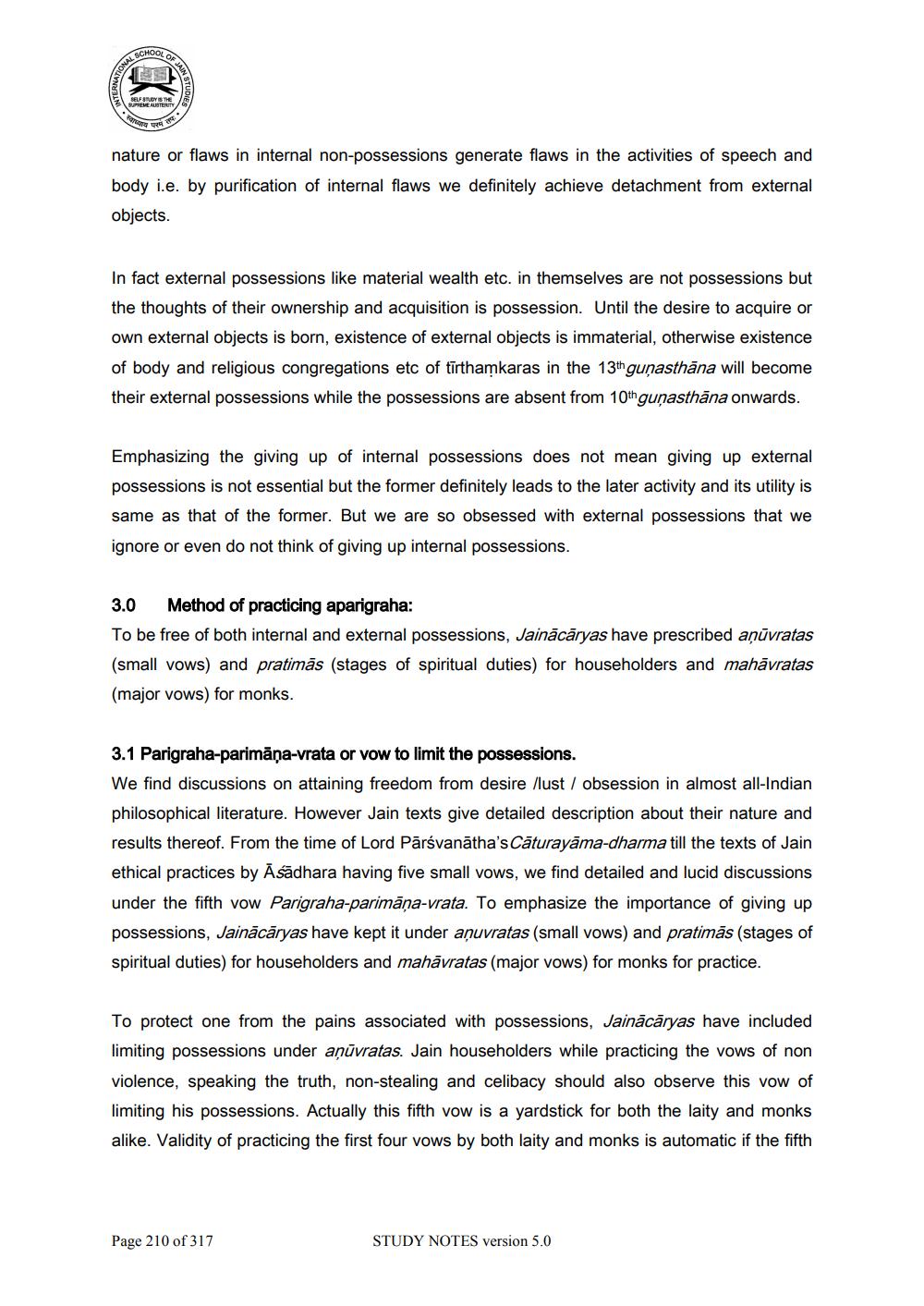________________
SCHOOL
TIONAL
OF
JAIN STUDIES
SELF STUDY IS THE SUPREME AUSTERITY,
ध्याय परम
nature or flaws in internal non-possessions generate flaws in the activities of speech and body i.e. by purification of internal flaws we definitely achieve detachment from external objects.
In fact external possessions like material wealth etc. in themselves are not possessions but the thoughts of their ownership and acquisition is possession. Until the desire to acquire or own external objects is born, existence of external objects is immaterial, otherwise existence of body and religious congregations etc of tirthamkaras in the 13 gunasthana will become their external possessions while the possessions are absent from 10th gunasthana onwards.
Emphasizing the giving up of internal possessions does not mean giving up external possessions is not essential but the former definitely leads to the later activity and its utility is same as that of the former. But we are so obsessed with external possessions that we ignore or even do not think of giving up internal possessions.
3.0
Method of practicing aparigraha:
To be free of both internal and external possessions, Jainācāryas have prescribed anûvratas (small vows) and pratimas (stages of spiritual duties) for householders and mahāvratas (major vows) for monks.
3.1 Parigraha-parimāņa-vrata or vow to limit the possessions.
We find discussions on attaining freedom from desire /lust / obsession in almost all-Indian philosophical literature. However Jain texts give detailed description about their nature and results thereof. From the time of Lord Parsvanatha's Caturayama-dharma till the texts of Jain ethical practices by Asadhara having five small vows, we find detailed and lucid discussions under the fifth vow Parigraha-parimaṇa-vrata. To emphasize the importance of giving up possessions, Jainācāryas have kept it under anuvratas (small vows) and pratimas (stages of spiritual duties) for householders and mahāvratas (major vows) for monks for practice.
To protect one from the pains associated with possessions, Jainācāryas have included limiting possessions under aṇūvratas. Jain householders while practicing the vows of non violence, speaking the truth, non-stealing and celibacy should also observe this vow of limiting his possessions. Actually this fifth vow is a yardstick for both the laity and monks alike. Validity of practicing the first four vows by both laity and monks is automatic if the fifth
Page 210 of 317
STUDY NOTES version 5.0




